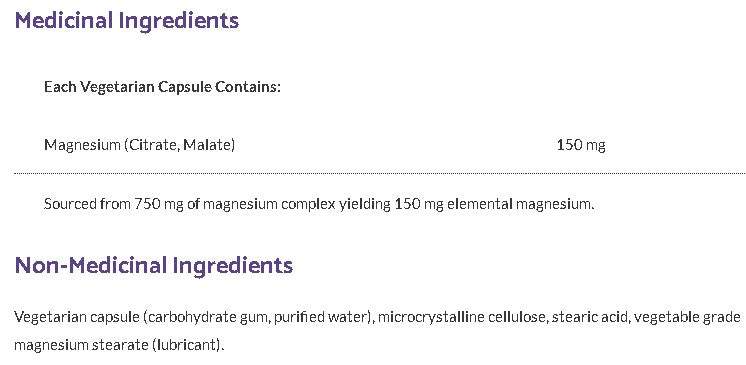



Magnesium CitraMal™ · 150 mg
- 19.99$
0.00$- 19.99$
- Unit price
- per
Description
x- Magnesium citrate has been shown to have superior bioavailability compared to other forms of magnesium, increasing its clinical efficacy.
- Citrate-malate complexes increase mineral absorption, especially in people with reduced gastric acid secretion.
- Malic acid provides an important substrate in the citric acid cycle, helping to improve energy metabolism.
- Convenient dosage of 150 mg per capsule, allowing easy therapeutic dosing.
The second most abundant intracellular cation and a cofactor for at least 600 enzymes, magnesium is a critical regulator of numerous cellular functions, ion channels, signaling pathways, enzymes, and metabolic pathways, including glycolysis, fatty acid oxidation, and DNA synthesis. Extensive epidemiological evidence indicates that low magnesium intake is quite common and associated with various pathologies, particularly metabolic and inflammatory disorders and markers of inflammation, such as C-reactive protein and uric acid. Low magnesium intake has also been associated with an increased risk of hypertension, osteoporosis, stroke, cognitive impairment, and cardiovascular disease. Magnesium is particularly important for cardiovascular function, as it influences myocardial metabolism, calcium homeostasis, vascular tone, peripheral vascular resistance, and cardiac output. Magnesium supplementation has also been shown to promote cardiovascular health.
Produits recommandés
Produits récemment consultés
- Choosing a selection results in a full page refresh.



